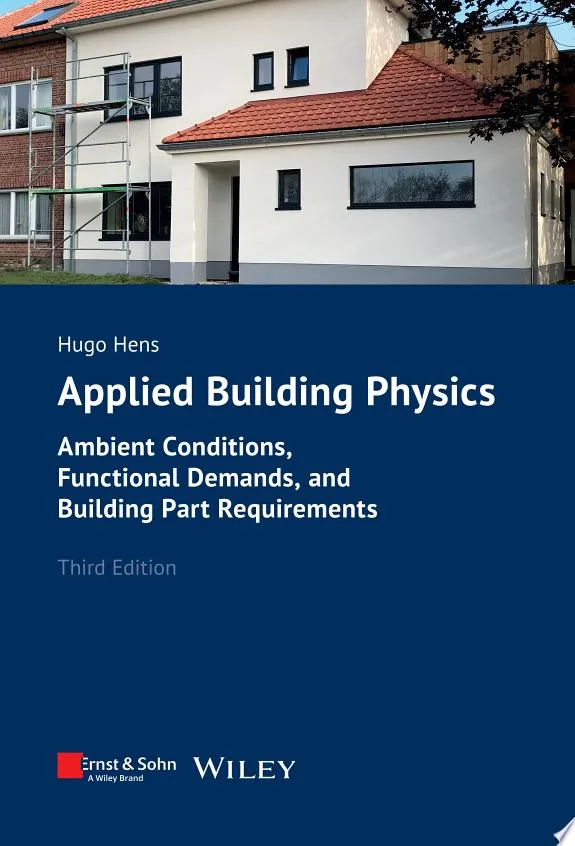
Applied Building Physics : Ambient Conditions, Functional Demands, and Building Part Requirements
(Author) Hugo S.L. HensWhile the first volume on building physics deals with the physical principles of heat, air and moisture behaviour of buildings, building structures and components, this second volume on applied building physics focuses on the question of what the desired performance of buildings consists of. To achieve this, knowledge of the external environmental effects and the internal live loads to which buildings are subjected is a necessary first step. Subsequently, the performance requirements and the physical correspondences are deepened with the determination of their physical parameters, at the levels of buildings, building structures and building components. Compared to the second edition, the discussion of criteria is not limited to thermal comfort, but also includes acoustic, visual and olfactory aspects. Likewise, the indoor air quality is considered in a broader way. Analyses and calculations result in sustainable buildings with a comfortable indoor climate from functional and durable building constructions. Compared to the second edition, the text for the third edition has been reorganised, corrected, revised and expanded where appropriate. A useful appendix for quick reference contains standard values of material properties for a wide range of building materials. The analyses and calculations described in this book result in sustainable buildings made of functional and durable building constructions, with comfortable and healthy indoor climate and air quality. Compared to the second edition the text in this third edition has been reshuffled, corrected, reworked and extended where appropriate.
Hugo S.L. Hens
Hugo S.L. Hens was a renowned German author known for his groundbreaking novel "The Shadow of Tomorrow," which explored themes of existentialism and the human condition. His distinctive literary style combined vivid imagery with philosophical depth, influencing generations of writers. Hens' contributions to literature continue to inspire and provoke thought.